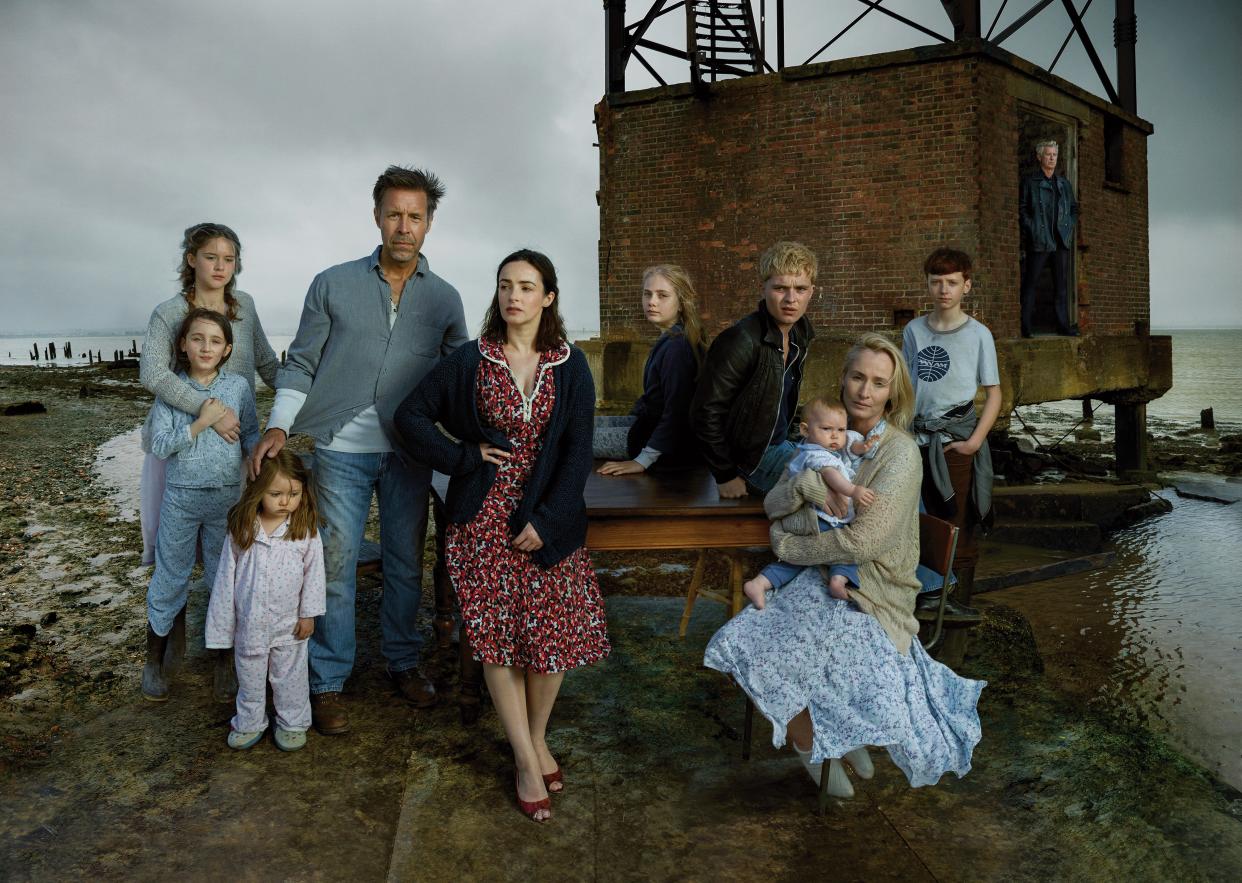Jez Butterworth’s Irish Family Epic The Ferryman Comes to Broadway

One night in 2012, the English playwright Jez Butterworth and his partner, the actress Laura Donnelly, were watching a television documentary about the “Disappeared”—the people in Northern Ireland who had been abducted, killed, and buried, their whereabouts unknown, by the IRA, mostly during the 1970s and 1980s. When the focus turned to one of the victims, Eugene Simons, whose body was discovered in a bog three years after he’d vanished in 1981, Donnelly turned to Butterworth and casually said, “That’s my uncle.” Butterworth had no interest in writing about Northern Ireland; he was mulling over a play about families and the harvest. But after he accompanied Donnelly and her mother to the funeral of a sixteen-year-old boy whose body had just been found after more than 40 years—something he recalls as “the most distilled situation of pure drama I’ve ever been in”—it was only a matter of time. “The whole thing started to snowball,” he says, “and before I knew it I couldn’t get out the way of it—I just had to hang on for dear life.”
Now, fresh from an ecstatically received and sold-out London run—and seven years after his magnificent Jerusalem conquered Broadway—comes The Ferryman, Butterworth’s ferocious and enthralling tale of a sprawling Irish family caught in the slipstream of tragedy, directed by Sam Mendes and featuring a cast of 21 (plus babies and livestock) led by Donnelly and Paddy Considine. Set in rural Northern Ireland in 1981, the nearly three-and-a-half-hour play bursts at the seams with characters and story lines marked by Butterworth’s hallmark humor, ambition, and a feel for how history and myth live on in the present.
The story centers on Caitlin Carney (Donnelly), who, after the disappearance of her husband, has been forced, along with her son, to live with her brother-in-law Quinn (Considine), his fragile wife, and their extended, eccentric clan. When the body of Caitlin’s husband turns up, preserved and still wearing his wedding ring, ten years on, it’s clear that—after a lot of dancing, drinking, betrayal, and thwarted romantic longing—there will be blood. “These are people who are trying to bury their dead,” Butterworth says, “and that seems to go to the heart of what being human is and the heart of drama, which is dignity, and the cost of trying to preserve that or survive its absence.”
Butterworth is in awe of Considine—you may know him as the treacherous Father Hughes on the BBC 1920s crime drama Peaky Blinders—who is making a revelatory stage debut. “He feels incredibly vulnerable at the same moment that he feels incredibly tough,” he says. “You’ll walk a long way till you find something that raw.” But Butterworth can be forgiven for being particularly moved by Donnelly, who did her entire six-month run of the show on the West End pregnant with their second child, and whose luminous, heartbreaking performance earned her last year’s Best Actress Olivier. “She’s so truthful, which you can see from the back row,” he says. “When an audience can’t tell the difference between what she’s doing onstage and what I’ve written on the page—for a playwright, that’s as good as it gets.”
In this story:
Sittings Editor: Phyllis Posnick.
Costume and Set Design: Rob Howell; Associate Costume Designer: Lucy Gaiger.
Prop stylist: Sam Overs. Hair: Darren Fowler.
Hair Associate: Helen Keane; Makeup: Celine Nonon, Susan Yates.

